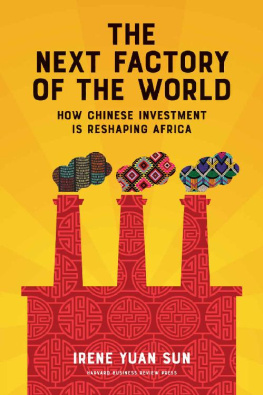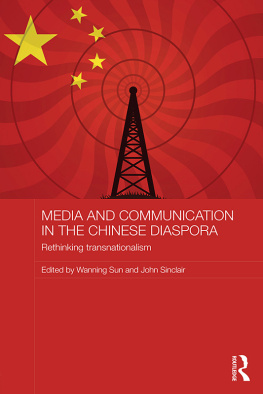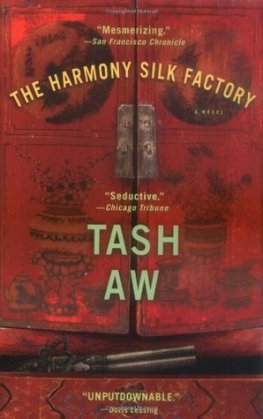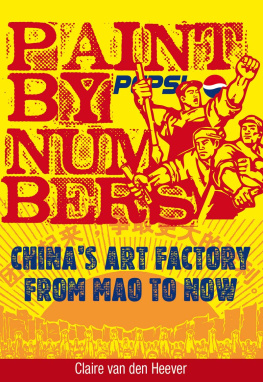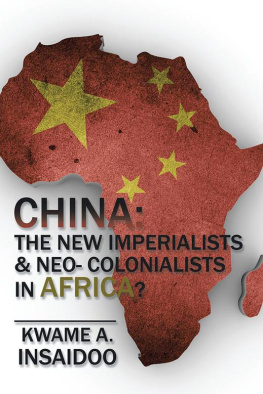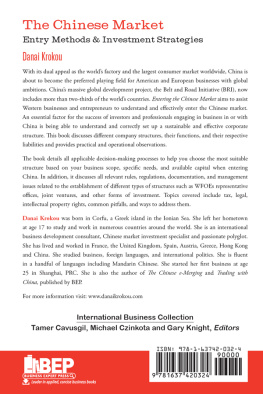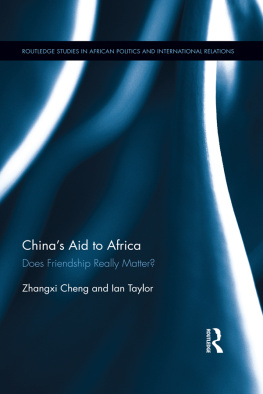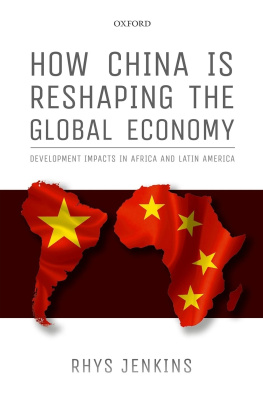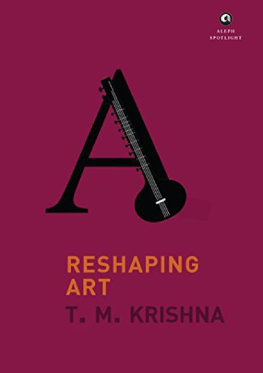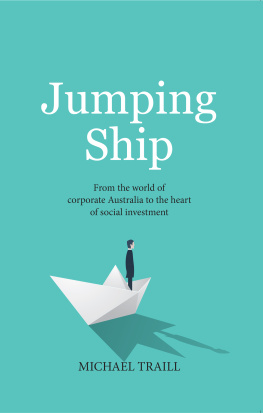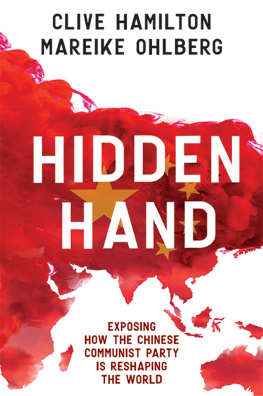Sun - The next factory of the world : how Chinese investment is reshaping Africa
Here you can read online Sun - The next factory of the world : how Chinese investment is reshaping Africa full text of the book (entire story) in english for free. Download pdf and epub, get meaning, cover and reviews about this ebook. City: Boston, Afryka., Chiny., year: 2017, publisher: Harvard Business Review Press, genre: Business. Description of the work, (preface) as well as reviews are available. Best literature library LitArk.com created for fans of good reading and offers a wide selection of genres:
Romance novel
Science fiction
Adventure
Detective
Science
History
Home and family
Prose
Art
Politics
Computer
Non-fiction
Religion
Business
Children
Humor
Choose a favorite category and find really read worthwhile books. Enjoy immersion in the world of imagination, feel the emotions of the characters or learn something new for yourself, make an fascinating discovery.
- Book:The next factory of the world : how Chinese investment is reshaping Africa
- Author:
- Publisher:Harvard Business Review Press
- Genre:
- Year:2017
- City:Boston, Afryka., Chiny.
- Rating:3 / 5
- Favourites:Add to favourites
- Your mark:
- 60
- 1
- 2
- 3
- 4
- 5
The next factory of the world : how Chinese investment is reshaping Africa: summary, description and annotation
We offer to read an annotation, description, summary or preface (depends on what the author of the book "The next factory of the world : how Chinese investment is reshaping Africa" wrote himself). If you haven't found the necessary information about the book — write in the comments, we will try to find it.
Sun: author's other books
Who wrote The next factory of the world : how Chinese investment is reshaping Africa? Find out the surname, the name of the author of the book and a list of all author's works by series.
The next factory of the world : how Chinese investment is reshaping Africa — read online for free the complete book (whole text) full work
Below is the text of the book, divided by pages. System saving the place of the last page read, allows you to conveniently read the book "The next factory of the world : how Chinese investment is reshaping Africa" online for free, without having to search again every time where you left off. Put a bookmark, and you can go to the page where you finished reading at any time.
Font size:
Interval:
Bookmark:
Irene Yuan Sun provides a memorable and challenging narrative of the industrialization of Africa and the China-Africa relationship, two of the most important trends in development today. Combining first-person research, a deep understanding of development theory, and an encyclopedic grasp of the African landscape, this is the one book to read if you want to understand both the opportunities and the hard choices Africa faces.
JONATHAN WOETZEL, Senior Partner, McKinsey & Company
Irene Yuan Sun uses vivid stories of private Chinese entrepreneurs in Africa to make complex topics of development, investment, governance, and public health accessible and compelling to the reader. This is a refreshing and beautifully written book.
WILLIAM C. KIRBY, T. M. Chang Professor of China Studies, Harvard University
By shifting the focus from Chinese trade to productive investment in Africa, Irene Yuan Sun opens a critical frontier with potentially profound impact. This is a pathfinding book that should inspire more work.
MUKHISA KITUYI, Secretary-General, United Nations Conference on Trade and Development
Irene Yuan Sun is a remarkable and astute observer, and her refreshing and exciting perspective on the new Africa is well worth readingand remembering.
RICHARD LEAKEY, world-renowned paleoanthropologist and conservationist
There are very few scholars who understand the nuances of Africas complicated relationship with China as Irene Yuan Sun does. In a writing style full of flair and dynamism, she provides thorough analysis and relevant insights to help readers understand Africas industrialization journey and the role China plays in it.
ISAAC K. FOKUO JR., cofounder, Sino Africa Center of Excellence Foundation; founder and principal, Botho Limited; and former CEO, African Leadership Network

HBR Press Quantity Sales Discounts
Harvard Business Review Press titles are available at significant quantity discounts when purchased in bulk for client gifts, sales promotions, and premiums. Special editions, including books with corporate logos, customized covers, letters from the company or CEO printed in the front matter, and excerpts of existing books can be created in large quantities for special needs.
For details and discount information for both print and ebook formats, contact
Copyright 2017 Irene Yuan Sun
All rights reserved
No part of this publication may be reproduced, stored in or introduced into a retrieval system, or transmitted, in any form, or by any means (electronic, mechanical, photocopying, recording, or otherwise), without the prior permission of the publisher. Requests for permission should be directed to or mailed to Permissions, Harvard Business School Publishing, 60 Harvard Way, Boston, Massachusetts 02163.
The web addresses referenced in this book were live and correct at the time of the books publication but may be subject to change.
First eBook Edition: Nov 2017
ISBN: 978-1-63369-281-7
eISBN: 978-1-63369-282-4
For Merry, who believed as if it were obvious
Names in this book are generally introduced in the full form if known. Thereafter, each person is referred to as I would address him or her in real life. Hence some people are referred to by English first names; others by Mr. or Mrs. followed by the family name; still others by their full names, as is Chinese custom between people of similar ages. I have occasionally changed names or redacted them altogether to protect peoples privacy; such cases are noted.
I remember the first time I rode in a car. Not many people in America can say that, cars being as prosaic as they are here. But this was in China, where I was born and where I lived until age six. Up to that moment, my conception of the Chinese word qiche consisted entirely of crowded buses onto which I was squeezed by my parents and heavy-duty trucks that children were definitely not allowed in. This car was something very different: there was no one in it I didnt know, and everything was effortlessly clean. The leather of the seats was smooth and cool to the touch and gave off the calming, sterile smell of newness. I was used to having to clutch my parents hands on standing-room-only buses or to wrap my arms around their midsections as they pedaled a bicycle. None of that was necessary here, so I wasnt quite sure what to do with the unexpected freedom of my limbs. I wanted to rub the dark-tinted windows to see if they would get lighter so that I could look outside. But I had been told it was a special occasion to sit in such a qiche , which probably meant I should keep my hands to myself.
Our family did not own the car, of course. It was the early 1990s, and almost no one in China owned a car. We took a spin in it as a treat from a family friend who was a government official. Four linked rings declared the car to be an Audione of the few models that existed in China at that time, and for years afterward the only car brand I could name. China had four carmakers in total, all founded in the 1950s in a fit of central-government-directed investment in heavy industry. The Soviet Union had advised that one of the firms be based in my hometown of Changchun because of its proximity to eastern Russia, the theory being that this nascent car plant could learn from its Soviet counterparts. The resulting firm, FAW, mainly made giant industrial trucks, and over the years, its blue and white logo became ubiquitous around town. But by the time I got to sit in one of its cars, the Chinese government had long ago severed any cooperation, in automobiles or otherwise, with the Soviet Union. In 1990, FAW turned instead to Volkswagen for investment and technical help in a joint venture agreement. FAW continued to make industrial trucks, but it also started making sedans under Volkswagens Audi brand. Thats how it came to be that a year or so later, my familyfather, mother, daughterwas sitting together in a car for the first time.
It bears repeating that this happened just twenty-five years ago. Im only thirty, but I personally witnessed a time when Chinas now car-clogged streets were full of bicycles instead. Such has been the rapidity of Chinas transformation, sparked by the rise of Factory China. In the quarter century since I first sat in that car, China has gone from producing 2 percent of global manufacturing output to 25 percent. But as impressive as these statistics are, to me, the real signs of development are all the small, everyday occurrences that can only delight people who have known life without them. My favorites: Sprite is no longer considered a rare treat, just a mundane soft drink. People now stand in lines at the airport instead of jostling one another relentlessly. Stores now provide toilet paper in their bathrooms. And no one thinks its anything special to ride in a car anymore.
As these changes were unleashed by China becoming the current Factory of the World, I grew up in the United States, and then went to live in another part of the world. After college, I taught eighth- and ninth-graders in a village in Namibia, in southwestern Africa. During a staff meeting, the principal of my school strong-armed me into running the school shop. Having no clue as to what I should be selling there, I asked at the end of one of my classes if any students would like to go with mein my carto the wholesaler an hour away to buy things for the shop. A burst of shouts was accompanied by an eruption of arms into the air. Every single kid wanted to go. More than a few trailed me home, begging me to pick them. I thought it was funnyand familiar. I knew this longing to sit in a car, and the novelty of actually doing so. Carsand Sprite and toilet papermay sound like very materialistic ways of defining development, but people who have these things tend to forget how much they are markers of modernity to those who dont. Americans and Europeans can be casual about sitting in a car, but to my child self in China, and to my students in Namibia, it was a thrill. The appearance of such material goods in a society heralds the possibility that people can adopt new selves, new ways of being in the world: as consumers and producers in the modern global economy.
Font size:
Interval:
Bookmark:
Similar books «The next factory of the world : how Chinese investment is reshaping Africa»
Look at similar books to The next factory of the world : how Chinese investment is reshaping Africa. We have selected literature similar in name and meaning in the hope of providing readers with more options to find new, interesting, not yet read works.
Discussion, reviews of the book The next factory of the world : how Chinese investment is reshaping Africa and just readers' own opinions. Leave your comments, write what you think about the work, its meaning or the main characters. Specify what exactly you liked and what you didn't like, and why you think so.

